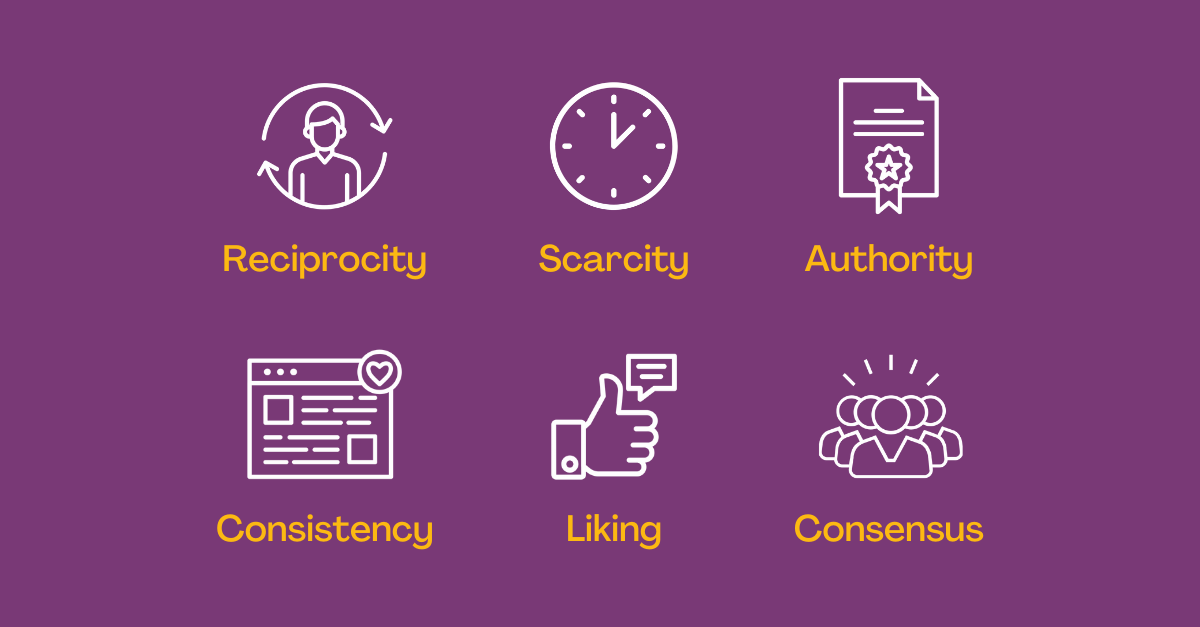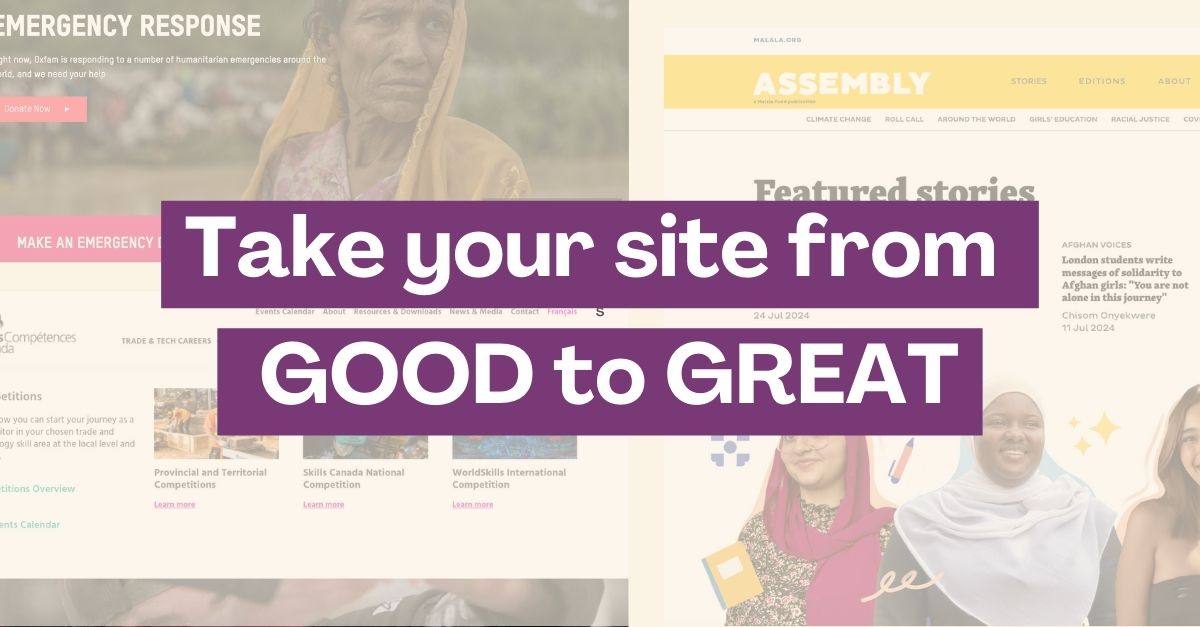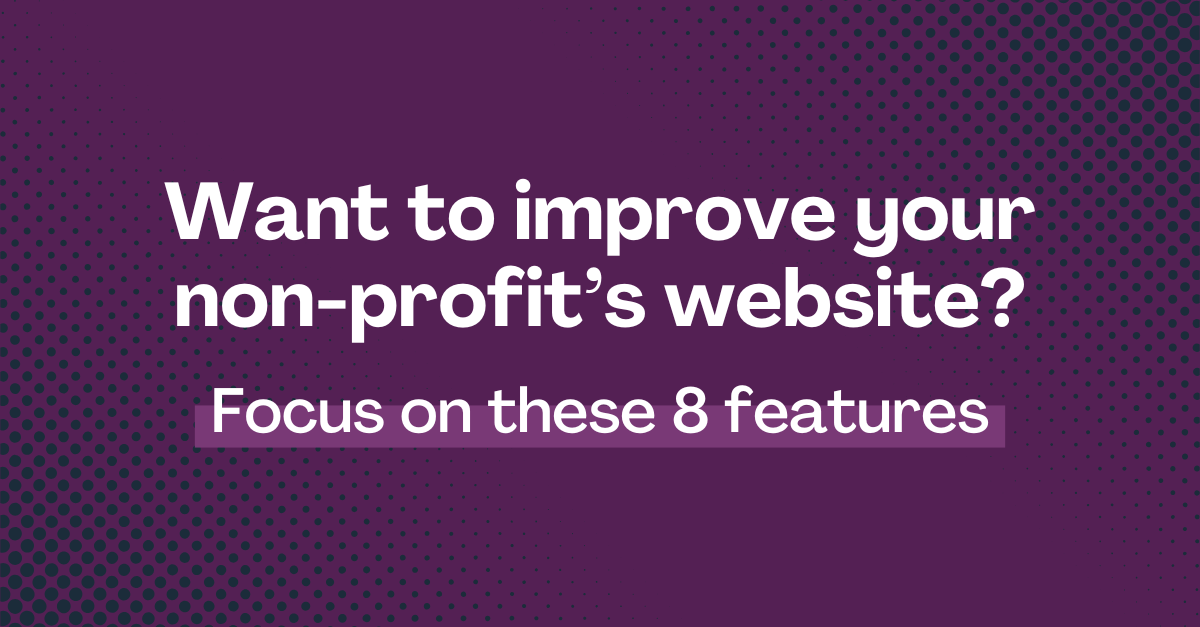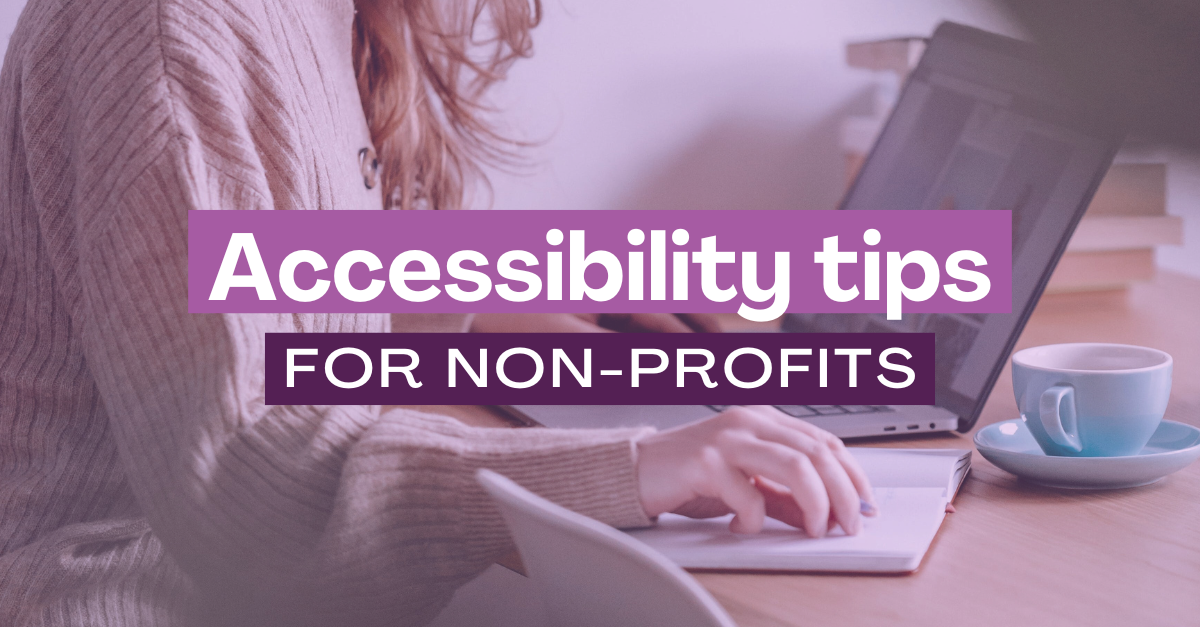"*" indicates required fields
5 SEO Tips for Ottawa Non-profit Websites in 2025
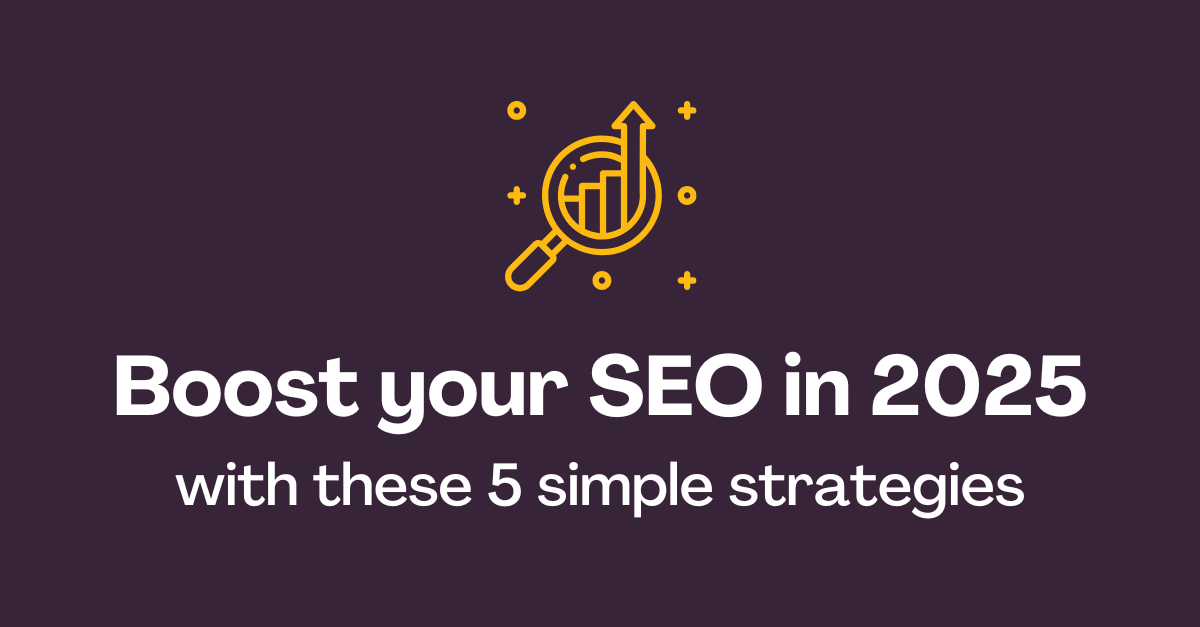
👩🏻💻 Did you know that 68% of all online experiences begin with a search engine? (Source: BrightEdge Research)
For non-profits, this means that people searching for terms like “how to help stray animals” or “local volunteer opportunities” are likely starting their journey on Google.
If your website content doesn’t match the search terms related to your niche, you’ll likely miss out on the chance to connect with the people who are aligned with your mission.
Search engine optimization (SEO) helps your website show up in search results for terms related to your non-profit. Unlike paid ads, which deliver immediate traffic but require constant spending, SEO focuses on building long-term visibility. However, it’s important to understand that SEO is a marathon, not a sprint—it takes time to see results. Small, consistent improvements to your website can lead to big rewards over time, helping you grow your audience and increase your impact.
In this article, we’ll share five actionable tips to help your non-profit build an effective SEO strategy and start connecting with those who want to further your cause.
Ready? We’ll show you how to…
⌨️ Find the keywords your audience is searching for.
🔍 Discover new SEO opportunities with paid ads.
💻 Create pages that match what people are looking for.
🕵🏽 Track traffic to see what’s working.
📈 Monitor rankings to stay competitive.
Tip 1: Perform keyword research based on real user searches
Keyword research is the process of finding the exact words and phrases people commonly type into Google when searching for information.
Why does this matter? When your website’s content contains the right keywords, your site ranks higher in search results, making it easier to find and connect with your audience online.
Example: an animal shelter might discover that people are frequently searching for terms like “adopt a rescue dog near me” or “best ways to care for a foster cat.” Knowing this, the shelter could create blog posts, FAQs, or dedicated web pages that answer these questions, increasing the likelihood of their website appearing in search results.
How to do your own keyword research:
✅ Use free tools like Google’s Keyword Planner, AnswerThePublic, or advanced platforms like SemRush to identify relevant search terms related to your non-profit. Don’t worry if this looks super technical—just start with Google’s free tools and build from there.
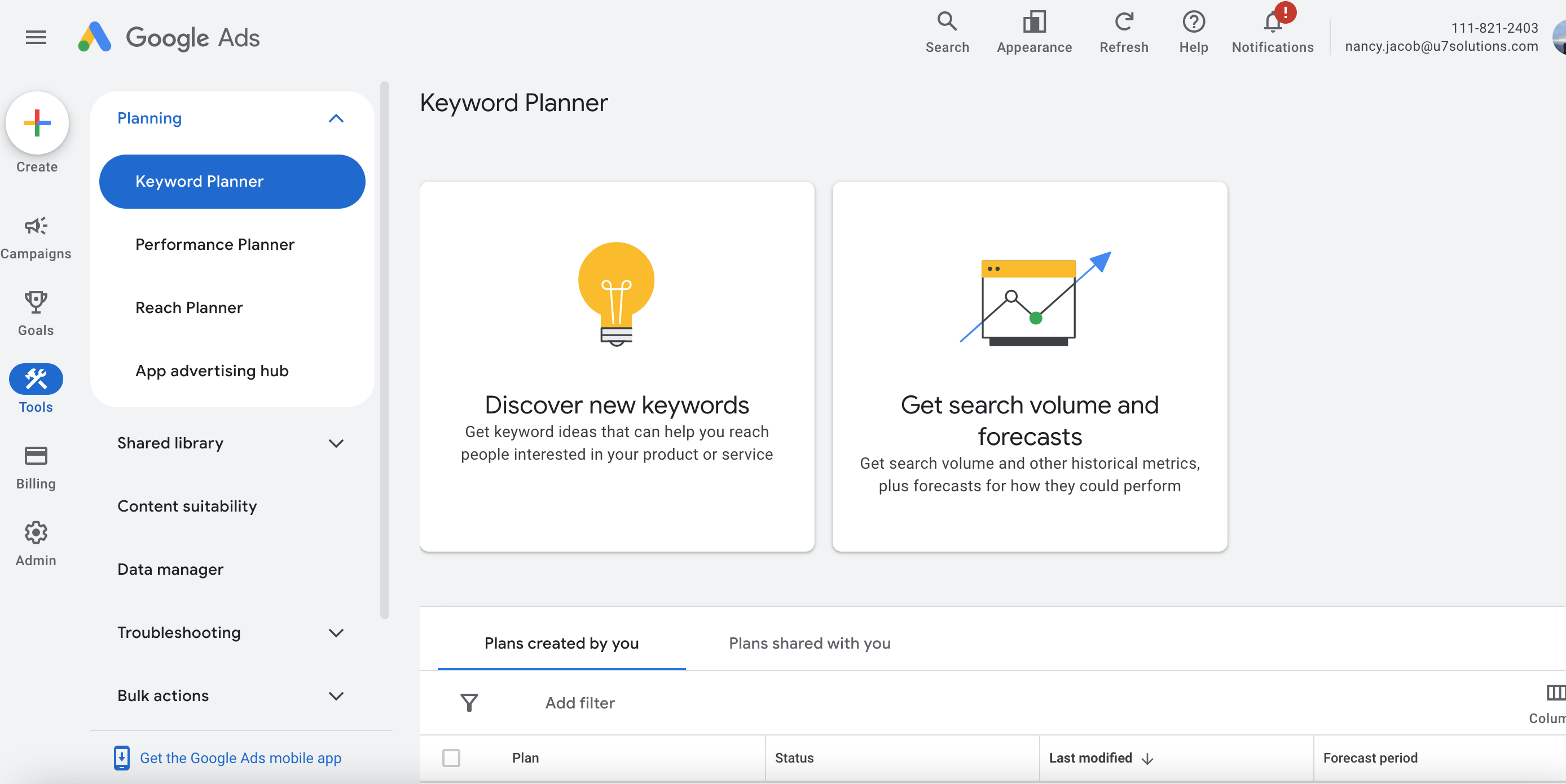
✅ Experiment with Google’s search bar. Type in a topic and take note of autocomplete suggestions or the “People Also Ask” section for content inspiration.
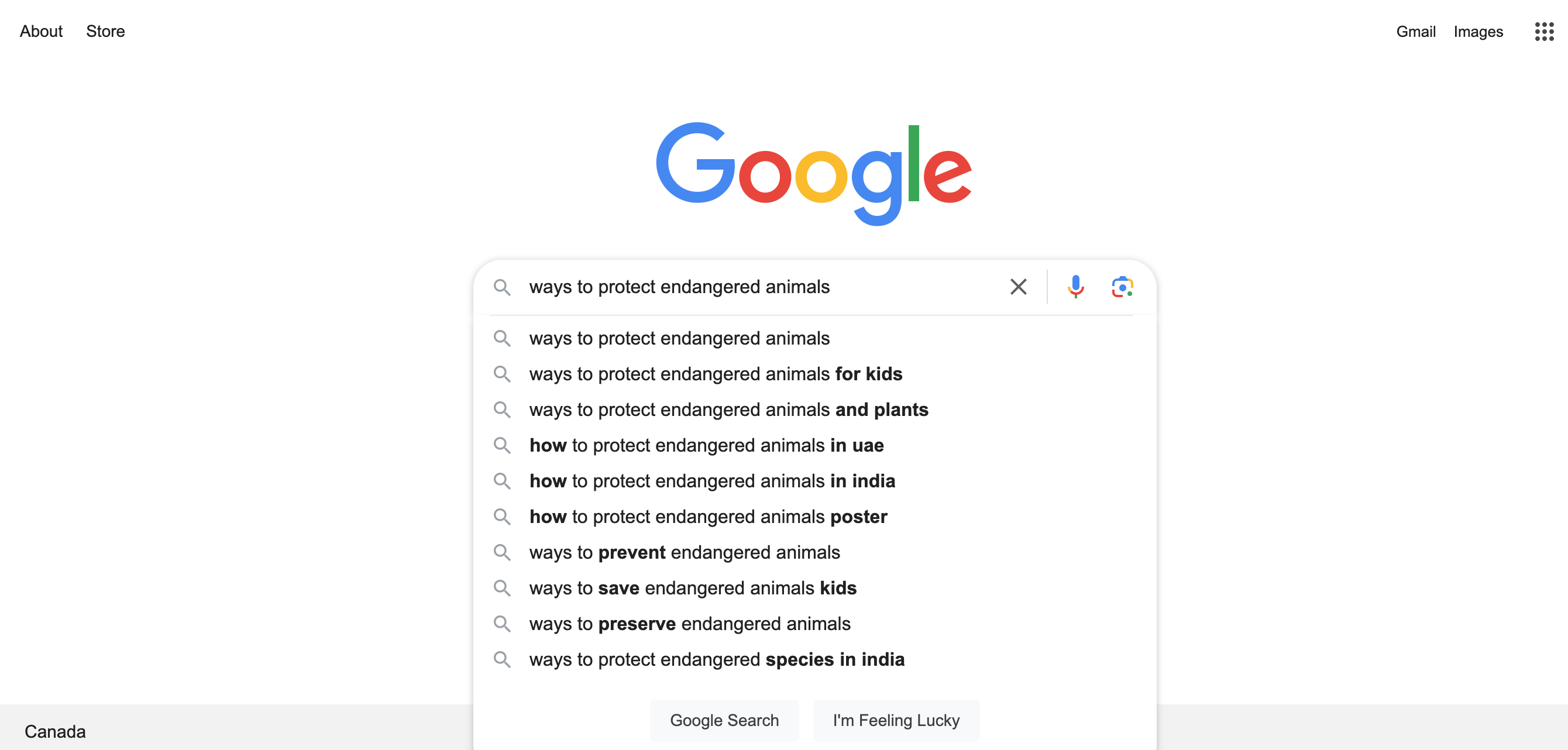
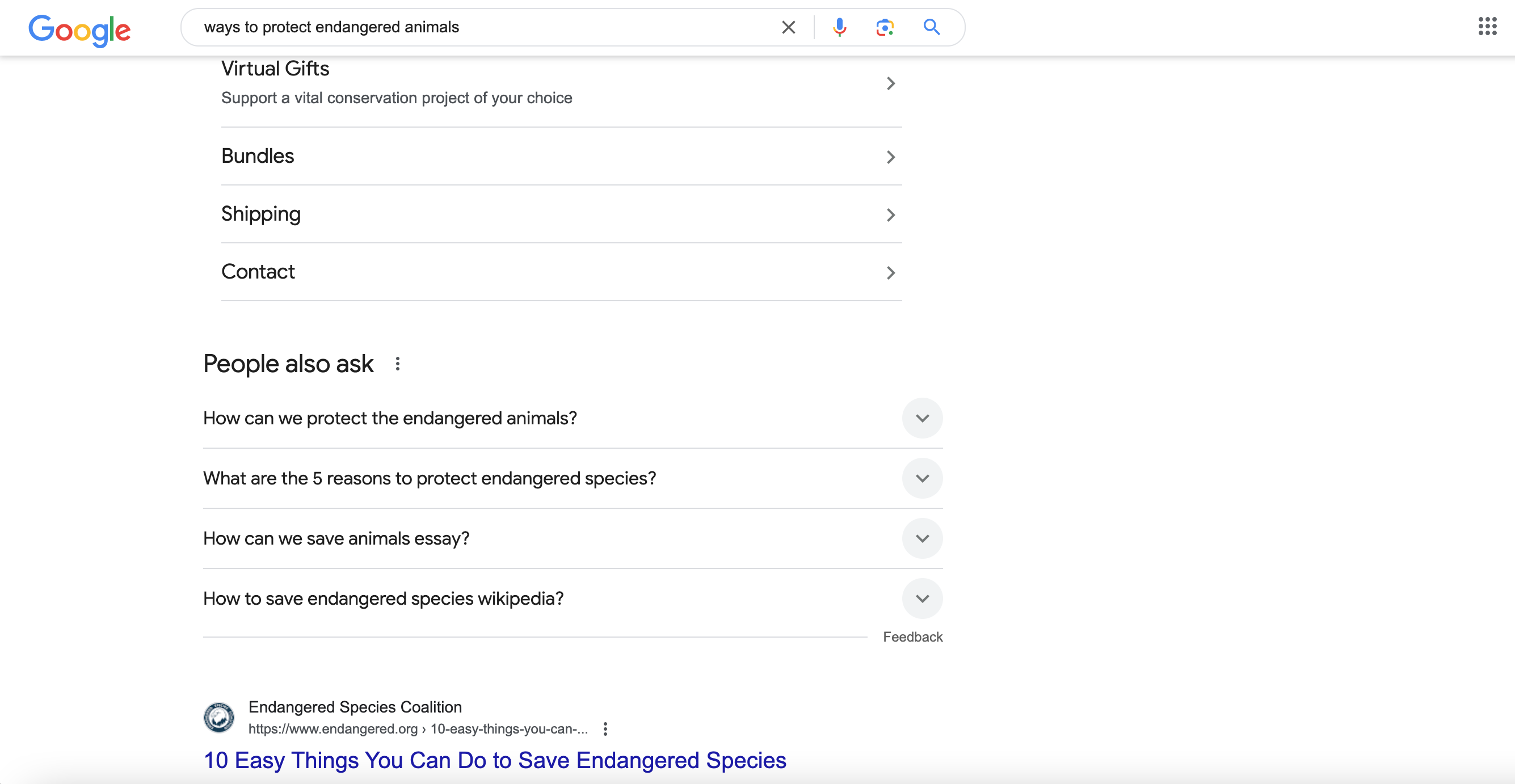
The results? ➡️ By focusing on the actual words your audience uses in their searches, you can ensure that your website is aligned with their needs. This will improve your discoverability, increase engagement, and drive more meaningful actions like donations, newsletter sign-ups, or volunteer recruitment.
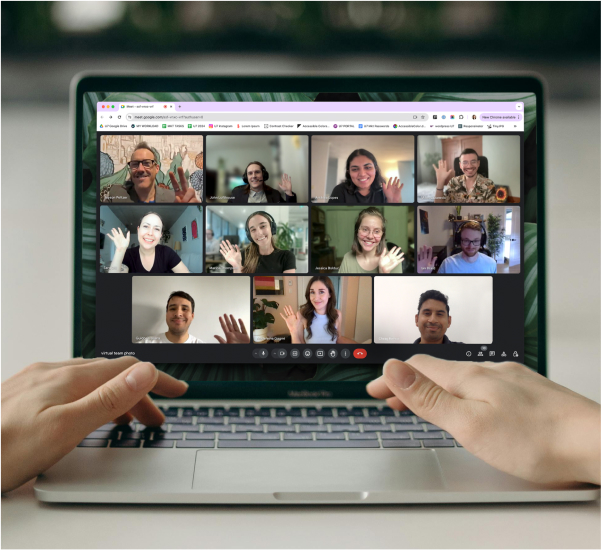
Boost your online presence with our help
- Web design and development
- SEO and PPC
- Social media strategy
- AI technology
Tip 2: Use PPC ads for keyword discovery
Pay-per-click (PPC) ads aren’t just for driving traffic—they can also help you discover new keywords that resonate with your audience.
Why does this matter? Ads allow you to “test-drive” which keywords people respond to before committing to a long-term SEO strategy. This means you can focus on the terms that are most likely to bring the right visitors to your site: people who are interested in your cause and ready to take action.
Example: an animal shelter might run ads targeting the keyword phrase “volunteer at an animal shelter.” If those ads perform well, they could create a dedicated webpage or blog post using that exact phrase to attract even more volunteers.
How to use PPC ads for keyword research:
✅ If you are a registered charity, apply for Google Ad Grants. Eligible non-profits can access up to $10,000 a month in free ad credits to promote their mission! 💸
✅ Use a small portion of your ad credits or marketing budget to test different keywords (the ones you found while doing keyword research). Focus on terms relevant to your mission, such as “adopt a rescue pet near me” or “pet fostering tips.”
✅ Go to the ‘Search terms’ tab within the ‘Insights and reports’ tab in your campaign dashboard to review performance data. Identify which keywords generate the most clicks or engagement, then integrate those phrases into your website content.
How search terms can provide insight
We recently ran a campaign for an Ontario-based client who was advertising a municipal “waste management” landing page. Once we ran the campaign for a few weeks, we were already learning what words could be added to the page to resonate with user searches, such as:
- norfolk county leaf collection
- norfolk county garbage collection schedule
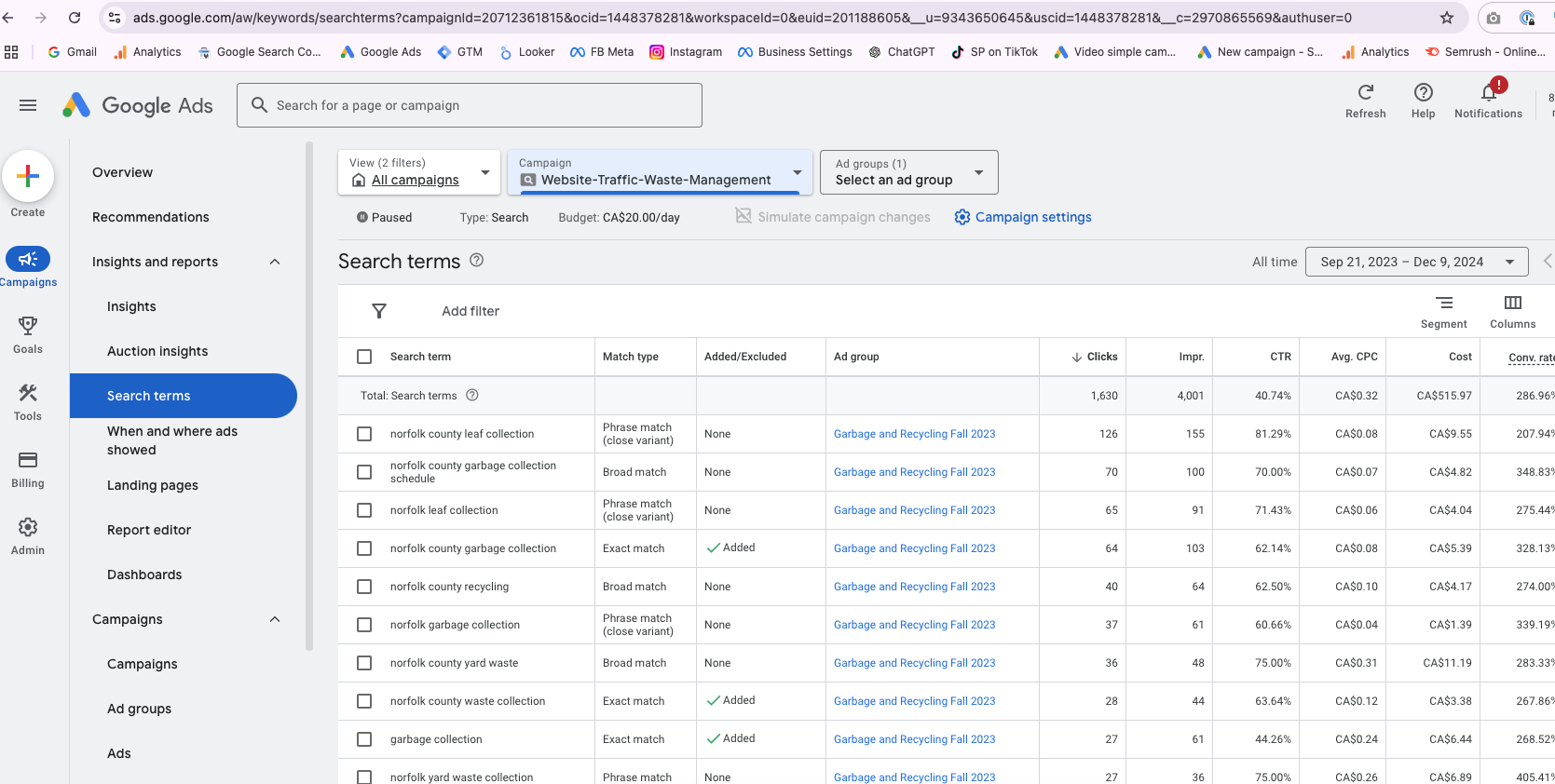
The results? ➡️ Ads give you real-world data on what your audience is searching for. With these insights, you can create more targeted content that connects with the right people and inspires action.
Tip 3: Create rich, targeted pages for user search intent
When someone types something into Google, they usually have a specific goal in mind, like learning about a topic or finding a service.
Matching search intent means creating content that aligns with the goal behind a user’s search. By understanding what your audience is looking for, you can craft web pages that provide the answers they need. 🔍
Why does this matter? When your web pages directly address what people are searching for, they’re more likely to rank higher in search results. This makes it easier for your non-profit to attract visitors who are ready to engage.
Example: let’s say people are searching for “how to help stray animals during the winter.” An animal shelter could create a detailed blog post on their website titled “5 Ways to Help Stray Animals This Winter.” The article could include actionable tips like donating supplies or volunteering at the shelter.
How to effectively create more targeted pages:
✅ Focus on specific searches that align with your keyword research rather than broad, high-level topics.
✅ Use clear headings, short paragraphs, and relevant keywords throughout the page.
✅ Add helpful extras like photos, videos, or downloadable guides to keep visitors engaged.
✅ Guide visitors towards the main actions you want them to take on your website (like donating) with bold buttons, simple calls to action, and clear instructions.
The results? ➡️ Pages that match user search intent will rank higher, attract more visitors, and inspire your audience to take action.
TIP 4: Track and analyze traffic by channel to measure impact
Tracking your website traffic is a crucial part of any SEO strategy. It shows how well your SEO strategy is working and helps you understand which areas need improvement.
Why does this matter? If you don’t track your website data, you won’t know if your SEO efforts are paying off. Not all website visitors are the same, and analyzing traffic by channel—like organic search, social media, or email—helps you see how much of your traffic is coming from SEO and whether those visitors are engaging with your site.
For example, an animal shelter might notice that organic search traffic has increased after optimizing their blog posts for SEO. At the same time, they might see that social media is driving fewer visitors than expected. With this data, they could double down on their SEO efforts while rethinking their social media approach.
How to track your website traffic:
✅ Set up Google Analytics on your website to start gathering data. It’s free and provides detailed insights into your visitors’ behavior.
✅ Use the “Acquisition” section in Google Analytics to compare traffic by channel and see which is bringing in the most traffic.
✅ Track key metrics like session duration and conversion rates (e.g., donations or volunteer sign-ups). These numbers tell you whether visitors from search engines are finding value in your content or leaving without engaging.
The results? ➡️ Tracking your traffic ensures you’re refining your SEO strategy based on real data (not guesswork), so you can focus on what works and which channels are reaching your audience efficiently.
TIP 5: Monitor SERP rankings to measure SEO success
Monitoring your search rankings shows how your pages are performing on SERPs (Search Engine Results Pages) and helps you identify gaps or opportunities to target NEW keywords.
Why does this matter? If you don’t know how your pages are ranking, you won’t know if your SEO efforts are paying off, or where to adjust your strategy.
By tracking rankings for key pages and keywords, non-profits can spot opportunities to climb higher in search results and make adjustments if certain pages aren’t performing as expected 📈
Example 1: An animal shelter’s “Adopt a Rescue Pet” page starts dropping in rankings for the keyword phrase “adopt a pet near me.” By monitoring this change, they’ll know it’s time to refresh the page—maybe by updating the content, adding new images, or improving the layout.
Example 2: By reviewing their search rankings in a tool like SEMrush, the same animal shelter might notice a new search term they are ranking for, like “local pet adoption events.” Based on this insight, they could create a blog post or event page to rank for this keyword and attract more local traffic.
Here’s a preview of how the position ranking report looks in SEMRUSH.
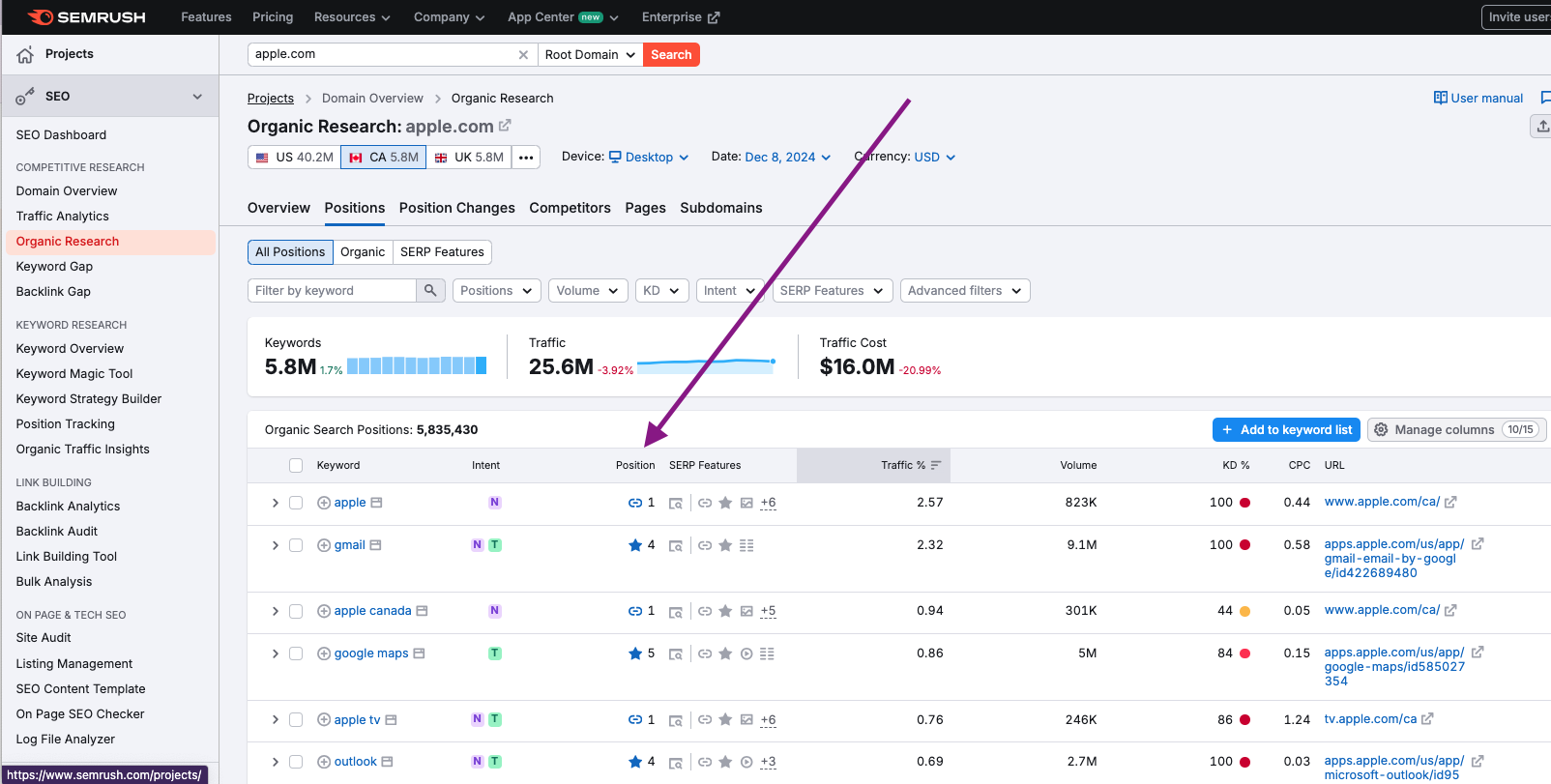
How to monitor your search rankings:
✅ Use free tools like Google Search Console to track how your pages are performing for specific keywords.
✅ Consider advanced tools like SEMrush or Ahrefs if your non-profit has the budget for more detailed ranking insights.
✅ Checking rankings monthly or quarterly is a good balance to track progress – you should focus on key trends, not analyze every minor fluctuation
The results? ➡️ By monitoring your search rankings, you’ll know exactly where your SEO is succeeding and where you need to make improvements. This keeps your website competitive and ensures you stay visible to the people searching for you.
Improving your Ottawa non-profit’s SEO doesn’t have to be complicated.
With consistent effort and the right strategies, you can increase your online visibility, connect with the right audience, and drive meaningful engagement.
⌨️ Perform keyword research by finding out what your audience is searching for and using those terms strategically in your content.
🔍 Use PPC ads to test which keywords work best and refine your strategy based on data.
💻 Create rich, targeted pages that align your content with what people are searching for to rank higher and drive engagement.
🕵🏽 Track and analyze your website traffic by channel to uncover where visitors are coming from and whether your SEO efforts are working.
📈 Monitor search rankings to track your page performance on SERPs and identify opportunities to improve your SEO.
Remember: SEO is a long-term strategy. Focus on making small, consistent improvements, and over time, you’ll see meaningful results for your non-profit.
Need help putting these tips into action?
Don’t hesitate to reach out to our team for a free SEO consultation—we’re here to help your Ottawa non-profit thrive online!
Let's chat about your goals
OR tell us more about you
Swipe up for expert help!


